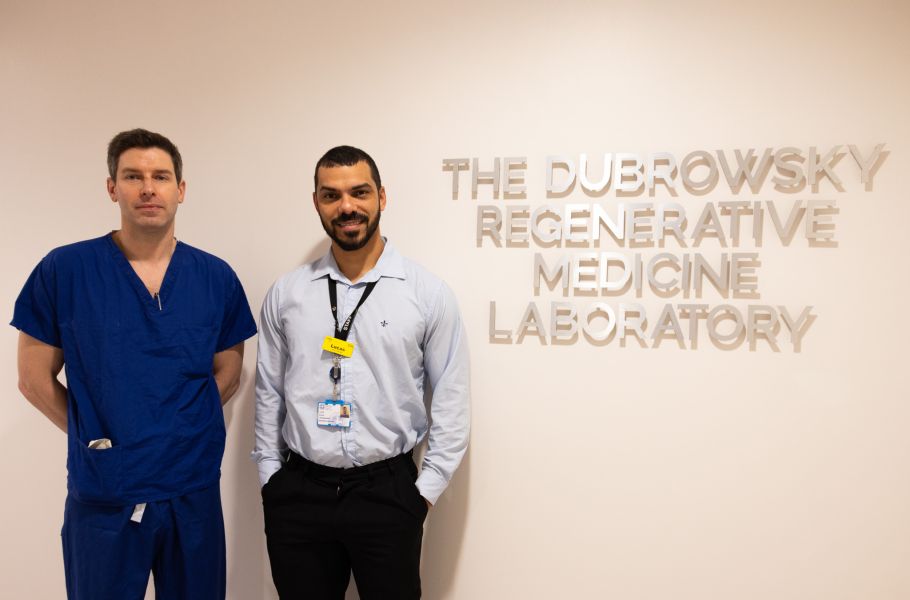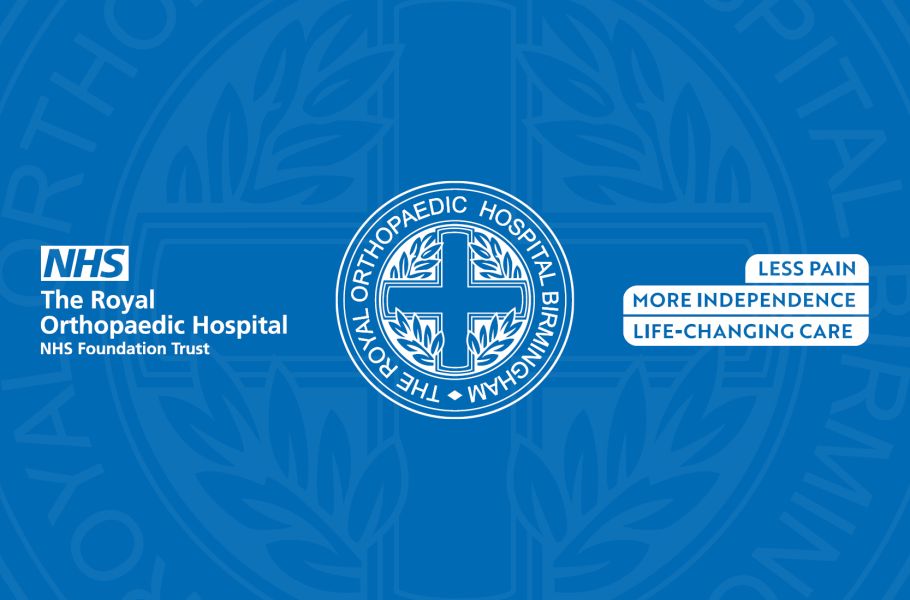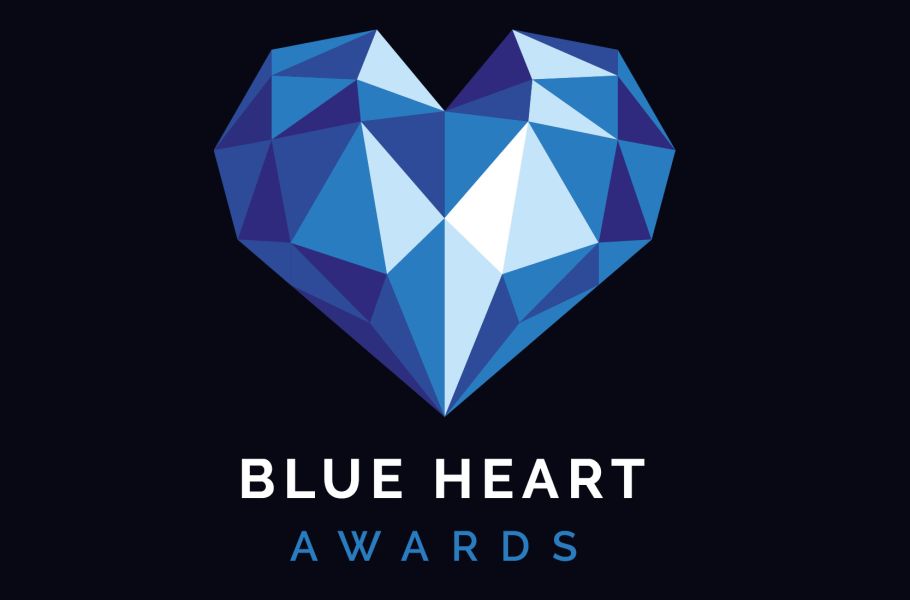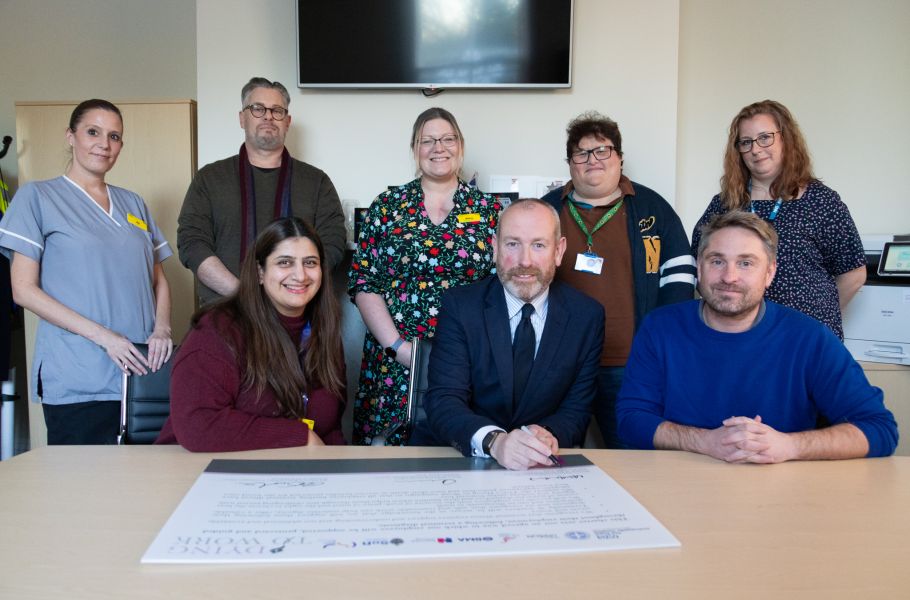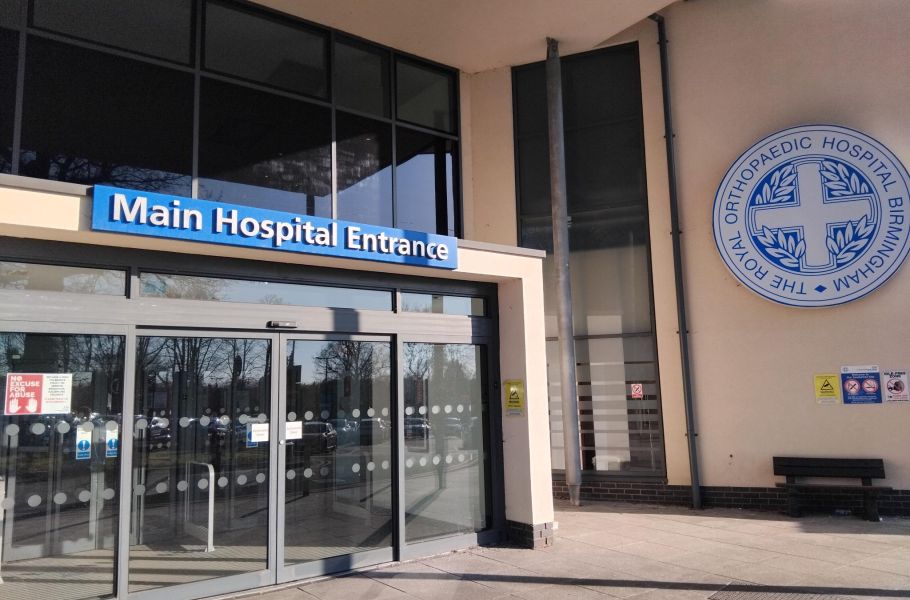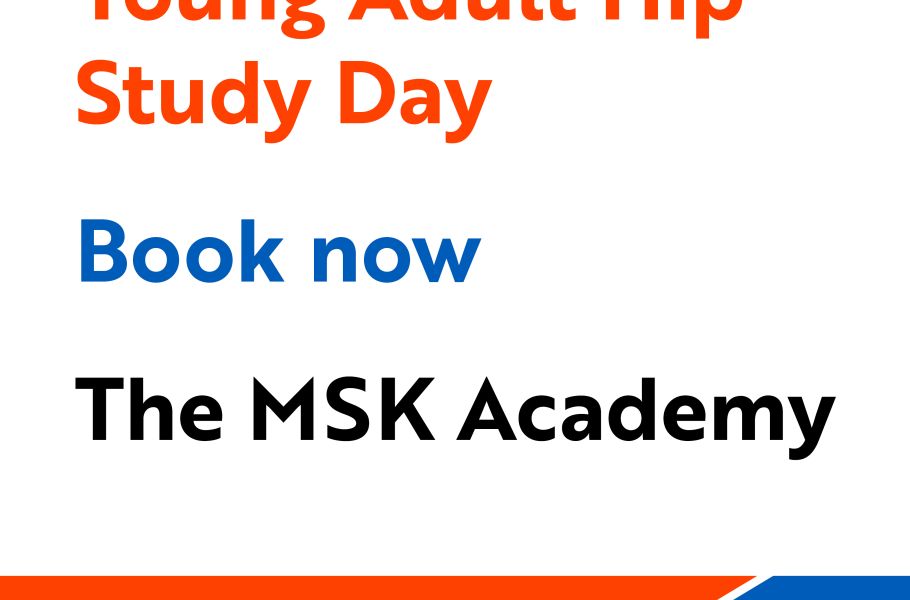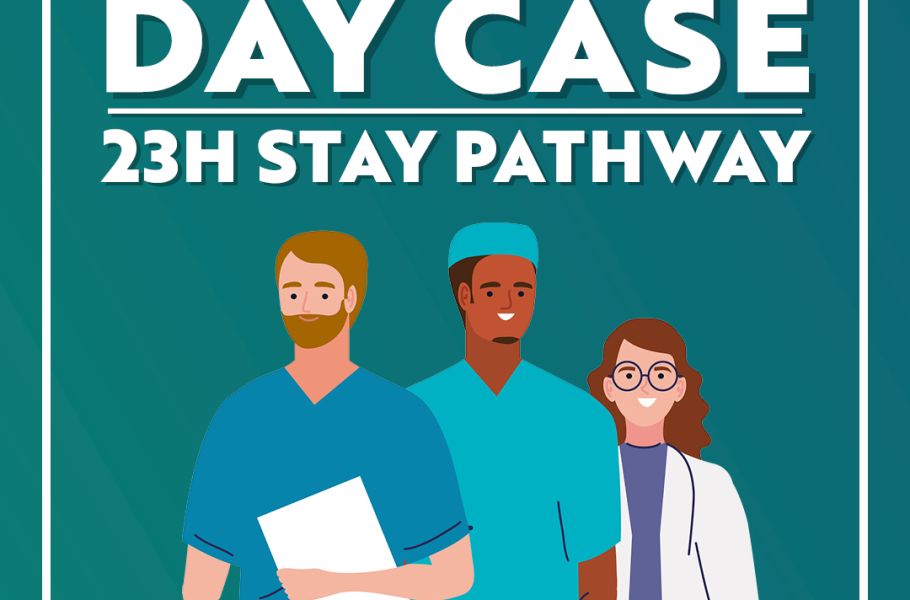Women in: Digital
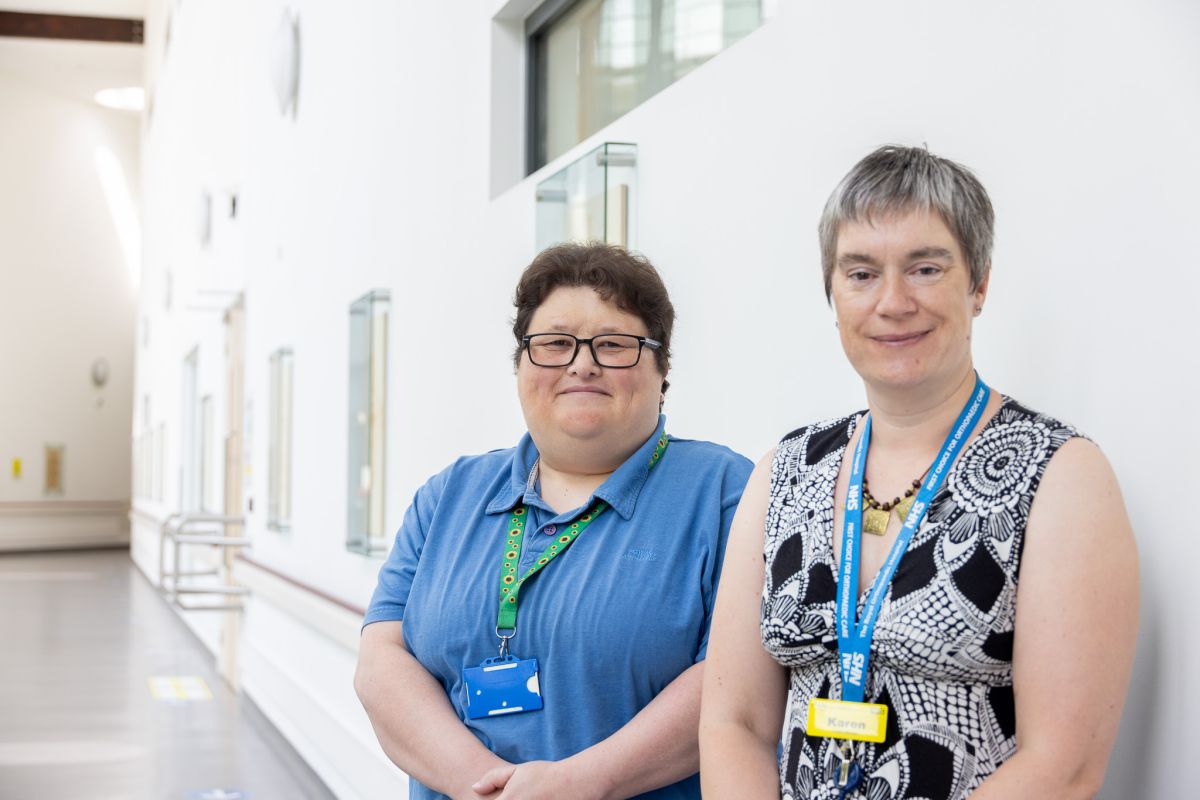
In this new series we’re taking a deeper look at some of the roles you may not be familiar with across the Trust, and the women that lead. First up is digital. We spoke with Karen McCarthy and Vickie Pring to understand more about their roles. Vickie is a Senior Systems and Web Developer, and recently completed an MSc with Distinction through an apprenticeship at the ROH. Karen McCarthy has recently been promoted to Digital Programme Manager and is currently leading on introducing a new telephony system across the Trust and EPR procurement.
Tell us about how you started out in digital?
Vickie Pring [VP]: When I left school in 1993, I didn’t know what I wanted to do. Back then there were careers offices on the high street you could call into for advice. I was told of a computer programming fast-track training scheme nearby, but I didn’t think it was for me, however the advisor persuaded me to go to the open day. I went, not realising they were doing aptitude tests, which I did well in and was offered a place on the scheme. I did well on the course and discovered I enjoyed the field, so upon passing city & guilds level 3 I applied to go to university to study computing and my career started after I graduated with an undergraduate degree.
Why did you pursue an MSc and how did the apprenticeship path at ROH support you with this?
VP: The MSc I completed is called Digital Solutions Specialist (software engineer). It was part of a level 7 apprenticeship – where you had to pass both the academic work and apprenticeship assessment to gain the qualification.
I felt like I needed to refresh my knowledge of academic research into computing, especially as AI is coming to the forefront. I also am keen to learn and believe lifelong learning is important. I noticed a colleague was doing a level 7 apprenticeship, which made me aware that they were available and that you could be in a full-time permanent position and still pursue this route. I did some research into the apprenticeships available and liaised with the learning and development team to move forward. Once I found the course for me and was accepted, I started the course and ROH supported me by giving me 1 day a week study leave. My manager also supported me to undertake this path.
During a 2.5-year course, life challenges will come along to make learning harder. Doing the level 7 course was very intensive and I had to study during weekends as well, so you do feel you have less free time. I also moved house during this time, and balancing that, with work and study was particularly hard to navigate. It can also be hard to remember you are doing 4 days’ work with a study day, instead of trying to fit 5 days’ work into 4.
I do live with depression and anxiety, and it could get harder when my symptoms were peaking.
I did feel burnt out sometimes, especially when trying to deliver my major project, apprenticeship portfolio and work at the same time. I did lean on the support of some exceptional colleagues for moral support, sounding ideas off and time management tips.
However, I am glad I took the time to do this study, and the end results were worth it.
What do you think can be done to improve diversity in the digital industry, particularly in more technical positions?
VP: I hope that as we progress, gender stereotypes of roles will start to disappear. You don’t have to identify as a specific gender to have aptitude in a subject. However, until that day arrives, I think it must start at the beginning, with schools encouraging everyone to have digital skills, and not be intimidated into progressing in these areas at GCSE, FE and University level. As an employer, we are inclusive but is it the role of us all to ensure we treat each other with respect and ensure everyone is valued. I also believe and have learnt on the MSc that soft skills are important as well as technical skills. You must be able to communicate with non-technical colleagues and show compassion for all. I feel some technical job specifications miss out on these crucial skills, but if you want a diverse workforce, you should be looking for the composite professional.
What can women in the workplace do today to help build the foundation for successful careers?
VP: Speak out! Be a role-model! And be ready to talk to aspiring young people about careers and what is possible.
Sometimes it can be hard when you are talked down to or not taken seriously. I find this not only as a woman, but also someone open about mental health struggles. Hopefully, every time you challenge someone who does that, one less person will be treated like that in the future.
Can you tell us a bit more about the digital training/education along the way?
Karen McCarthy [KM]: I’ve had very little formal digital education but I have been around computers for most of my life. I built my first PC when I was 13 back in the days where it was cheaper to buy individual components year on year (though a lot of mine were hand me downs from my brother when he got something bigger and faster) and 4mb of ram was a major memory boost! In some respects I was the black sheep of the family by doing an arts degree (ancient history and archaeology) but coming from a science and computing family meant I always understood it. A lot of my friends are technical as is my husband, which can be handy sometimes when I need clarification on how things work. I did do the Microsoft TechHer series of training sessions last year which I would really recommend to any women who have an interest in IT as it covers a broad range of areas so is a really good overview.
Have you faced any barriers or discrimination as a woman in digital?
KM: My first official IT role was as a project manager with the police and yes, there was a lot of assumption that I didn’t know anything about tech. The first meeting I had with the telephony lead was half an hour of him trying to prove I didn’t know anything so should just do everything he said. It’s difficult as I always prefer to see the best in people and he was almost certainly worried about the way the project could impact his job, but it was undeniable that he was far more helpful to my male colleagues and I don’t think I had particularly done anything to upset him at a personal level. It is far better now than it used to be but for a long time women have had to be twice as good as men in the industry just to be considered about the same level.
What do you think can be done to improve diversity in the digital industry, particularly in more technical positions?
KM: It’s got to start at school and younger. Anyone who wants to get me on my soap box just needs to ask me about gendered toys! I was looking for some building bricks for a friend’s little girl several years ago and every box had a boy and it’s the same with a lot of the science toys. If girls don’t get encouraged early they just never see it as a career option. Role models are hugely important as well. I honestly hadn’t thought about it until writing this, but I’ve worked in 3 project teams now. In both of the IT ones I was the only woman and in the wider pool of project managers I was the only woman given IT rather than estates projects. I grew up with my brother and the boys up the road so have always been comfortable with male friends, but it’s definitely true that people are less likely to see themselves in a career if there isn’t anyone like them.
What does success mean to you?
KM: That what I’ve done has improved the business or made someone else’s life easier/better in some way. Technology is an enabler, it’s entire point is to help do something or solve a problem. If it isn’t doing that then it isn’t the right answer.

